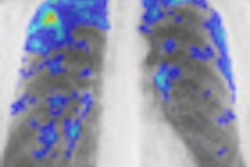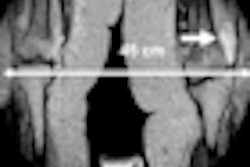
LONDON (Reuters) - British tuberculosis (TB) screening for new immigrants fails to detect most imported cases of latent disease, and screening should be widened to include more people from the Indian subcontinent, scientists said on Thursday.
Britain has recently been dubbed "the tuberculosis capital of Europe" and is the only country in Western Europe with rising rates of disease.
Current British border policies require immigrants from countries with a TB incidence higher than 40 per 100,000 people to have a chest x-ray on arrival to check for active TB.
This generally covers African countries but excludes places in Asia such as India, Pakistan, and Bangladesh.
TB is caused by a bacterial infection which is normally asymptomatic, but about one in 10 cases leads to active disease which attacks the lungs and kills around half of those affected.
While very few immigrants have active TB on arrival, many of them are carriers of the latent disease, which often progresses to active TB within a few years of their arrival in Britain.
To see whether the screening was effective, British researchers analyzed demographic and test result data from 2008 to 2010 at three immigrant screening centers in Britain using a highly specific blood test for detecting latent tuberculosis, called an interferon-gamma release assay (IGRA).
Their results, published in the Lancet Infectious Diseases journal, showed 20% of recent immigrants from the Indian subcontinent and almost 30% from sub-Saharan Africa are carriers of latent TB.
This means the current screening policy, which excludes immigrants from the Indian subcontinent, has been missing 70% of imported latent TB, they said.
TB is a worldwide pandemic. Among the 15 countries with the highest estimated TB incidence rates, 13 are in Africa, while a third of all new cases are in India and China, according to the World Health Organization (WHO).
The WHO also says drug-resistant TB is rapidly increasing around the world and these often fatal strains of the disease are expected to affect 2 million people by 2050.
Cost-effective
Britain has more than 9,000 cases of TB diagnosed a year, and the problem is becoming particularly acute in the capital, which experts say accounts for 40% of the nation's total diagnosed cases.
In this study, the researchers also assessed how cost-effective it would be to lower the threshold so people from more countries are screened. They found that including immigrants from the Indian subcontinent would detect more than 90% of latent TB cases, and would cost little more than now.
"By changing the threshold for screening, and including immigrants from the Indian subcontinent, we could pick up 92% of imported latent TB," said Ajit Lalvan from Imperial College London, who led the study.
"By treating people at that early stage, we can prevent them from developing a serious illness and becoming infectious."
The national incidence of TB has risen dramatically over the past decade, increasing by almost 50% between 1998 and 2009. Much of this increase has been driven by a 98% increase in cases among immigrants.
Foreign-born people account for nearly three quarters of the country's TB cases, and have a 20 times higher incidence of TB than people born in Britain.
By Kate Kelland
Source: http://bit.ly/gnwSHs
Lancet Infectious Diseases, online April 21, 2011.
Last Updated: 2011-04-21 14:02:03 -0400 (Reuters Health)
Copyright © 2011 Reuters Limited. All rights reserved. Republication or redistribution of Reuters content, including by framing or similar means, is expressly prohibited without the prior written consent of Reuters. Reuters shall not be liable for any errors or delays in the content, or for any actions taken in reliance thereon. Reuters and the Reuters sphere logo are registered trademarks and trademarks of the Reuters group of companies around the world.



















